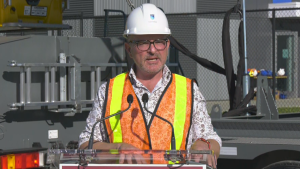There have been growing concerns about the changes being made to the legislation surrounding medical assistance in dying (MAID). The proposed changes have sparked debate and raised questions about the future of this controversial practice.
MAID, also known as assisted suicide or euthanasia, is the process of intentionally ending a person’s life with their consent in order to relieve their suffering from a terminal illness or intolerable medical condition. It has been legal in Canada since 2016, with strict guidelines and safeguards in place to ensure it is only used in appropriate cases.
However, the federal government has recently introduced Bill C-7, which aims to expand access to MAID by removing some of the current restrictions. One of the proposed changes is to remove the requirement that a person’s death must be “reasonably foreseeable” in order to be eligible for MAID. This means that individuals who are not terminally ill but are suffering from a severe and incurable condition could also request MAID.
While some argue that this change would provide more autonomy and choice for individuals, others are concerned about the potential for abuse and coercion. There are fears that vulnerable individuals, such as those with disabilities or mental health issues, may feel pressured to end their lives rather than receive proper care and support.
Another proposed change is to allow for advance requests for MAID. This means that a person could make a request for MAID while they are still mentally competent, but have it carried out at a later date when they may no longer be able to give consent. This has raised concerns about the potential for individuals to change their minds or for their circumstances to change, making the request no longer valid.
There are also concerns about the impact of these changes on healthcare professionals. Under the current legislation, doctors and nurses have the right to conscientiously object to participating in MAID. However, with the proposed changes, healthcare providers may be required to refer patients to another provider who is willing to assist with MAID. This has raised ethical concerns for those who have moral objections to the practice.
The federal government argues that these changes are necessary to comply with a 2019 court ruling that found the “reasonably foreseeable” requirement to be unconstitutional. They also claim that the changes will provide more compassionate options for those suffering from intolerable conditions.
However, opponents of the changes argue that the government is rushing to make these changes without proper consultation and consideration of the potential consequences. They are calling for more safeguards and protections to be put in place to prevent abuse and ensure that MAID is only used as a last resort.
The debate over MAID and its legislation is a complex and emotional one, with valid arguments on both sides. As the proposed changes continue to be debated and discussed, it is important for all voices to be heard and for the potential impact on individuals and society to be carefully considered.




